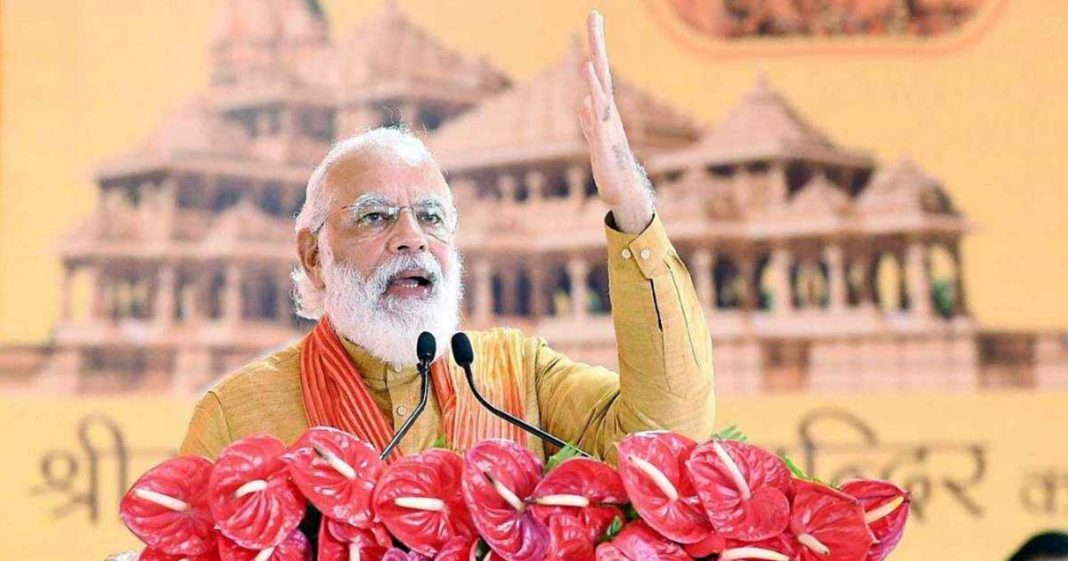Over the last decade, Democracy has taken a back foot on the global stage which threatens the Western-led world order that was established after the cold war. As the major players of this world order scramble to resist revisionist powers and political change, the imperilment of struggling democracies will be the final nail in the coffin.
Ever since its independence in 1947, India fully embraced the true spirit of democracy by establishing a parliamentary system and far-reaching constitution. With its Geo-strategic position and economic potential, India has proven to be a great asset to the liberal world order and its allies hence the inevitable erosion of its democratic principles in recent history is worrisome to many key players. Democracy in its most authentic form provides a system of equal and fair opportunity within a community with a wide array of religions, ethnicity and languages, etc. Hence making India the ideal society for making a compelling case for democracy in the developing world. This is why the deteriorating health of its democratic principles is a red flag for the global democratic movement.
Read more: Pakistan embassy provides shelter to Indian students stranded in Ukraine
Is the West influencing India’s democracy?
A gap exists between the ground realities in the assumed democratic state and its understanding as perceived in the West. The current Indian government presents the narrative that there are different paths to democratic development within a state therefore the democratic values as interpreted by the west cannot be translated as it is in India or any other South Asian country. In the context of the complex ethos-religious diversity present in India and the wider region. Prime Minister Narendra Modi in his national statement expressed his viewpoint that the basic strength of Indian democracy lies in the multi-party system, free media, independent judiciary. The Modi government claims to practice such values by engaging with its citizens and cooperating with fellow democracies and the overall movement.
If we deconstruct this reality, however, India’s democratic regression becomes as clear as day. The modern political ideology of the majority of Bharatiya Janata Party (BJP) Champions the Hindutva, a set of ideas that completely undermines the very foundation of a democratic state – by rejecting the notion that all citizens are equal. Sectarian tension has always been an integral and often volatile element of the state and the adaption of democratic values by both the people and state displayed their commitment towards nation-building. As a result, a very optimistic West eagerly integrated India into their fold for its potential as the largest democracy in the world.
In recent history, the rise of the Hindu nationalist BJP spearheaded by Narendra Modi revealed the fault lines within their process and the internal weakness in the Indian democratic system. Hindutva drives the sectarian policy in India today, which is actively shrinking land for the 19.3% of minorities living in India. The ideology asserts that Hindus constitute a dominant majority in India and should be treated as superior among equals. The champions of Hindutva justify its majoritarian stance by reiterating the twelve centuries of slavery imposed on the Hindu by colonizers and regimes at different points in history. The Bharatiya Janta Party is the ideological offspring of Rashtriya Swayamsevak Sangh (RSS) – a national volunteer corps serving at the forefront of the Hindu revivalist movement.
Read more: President Putin reaches out to Israeli, Indian premiers
How Modi has been manipulating India’s politics?
In 2014, Narendra Modi planted figureheads at different power centers of the country and eventually led his party to electoral victory. The BJP prime minister Atal Bihari Vajpayee was in power before Modi had already confided in the Hindutva ideology to drive his policies by subduing its hard-line nature and presenting them as divisive center-right policies. The acceptance of the Indian public towards decisions that eschewed minorities revealed their susceptibility to manipulation – which leaders like Modi fed into. In 2019, with an absolute majority in parliament, he abrogated the special status given to the state of Jammu and Kashmir in its constitution.
This received global criticism as it gave Hindus an edge over disadvantaged Muslims in India and Kashmir. Moreover, on December 11, 2020, Prime Minister Narendra Modi’s Hindu-nationalist government had passed its Citizenship Amendment Act (CAA), which gave immigrants from three neighboring countries (Afghanistan, Pakistan, and Bangladesh) a path to citizenship on one condition: that they were not Muslim. For the first time in history, the constitutionally established secular state of India was undermined by a serving government. Madhav Khosla, a constitutional expert described the new laws as a movement toward “an arrangement where citizenship is centered on the idea of blood and soil, rather than on the idea of birth.”
Read more: Can India do what Russia did in Ukraine? -Gen. Tariq Khan
Over the course of his regime, Prime Minister Modi has strategically dismantled the core of democracy while using its principles as a smokescreen for people at home and abroad. A significant aspect of this strategy is the weakening of the civil-society foundation in India, which makes it easier for a government to manipulate its citizens. This is done through the centralization of power and a crackdown on the freedom of expression.
The writer is currently an undergraduate student at National Defence University, Islamabad. The views expressed in this article are the author’s own and do not necessarily reflect the editorial policy of Global Village Space.














